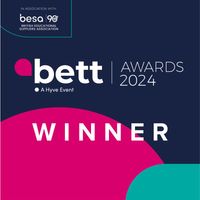Acclaimed educational psychologist Barak Rosenshine’s 10 Principles of Instruction (2012) have recently become essential reading for teachers. Drawing on cognitive science, research into effective instructional procedures and studies of successful teachers, Rosenshine sets out a methodical approach with concrete examples of how each technique can be used in the classroom.
By using these principles, successful teaching enables new material to move into learners’ long-term memory, linked to their existing knowledge. This means that when learners are faced with a new problem, they can automatically recall information they already know to help solve it. Plus, they don’t have to spend their limited processing power – or working memory – on just remembering facts.
Bedrock’s learning process ingrains academic Tier 2 words in learners’ vocabularies so they can use them in speaking, writing and reading. It draws from a wealth of educational research, including Rosenshine’s 10 Principles.
In this blog, we explain Rosenshine's principles and how Bedrock’s learning process reflects each one.
Rosenshine's 10 Principles of Instruction
1. Begin each lesson with a short review of previous learning
What the research says: New information needs to be reviewed regularly to make sure it is retained in long-term memory and can be recalled instantly. Students who are able to fluently recall knowledge can understand new material and solve problems more easily.
What we do: At the start of every Bedrock lesson, students complete a variety of review tasks, practising the language they’ve already learned. This sustained recapping means words enter students’ long-term memory for lifelong retention and automatic recall.
2. Present new material in small steps, followed by learner practice
What the research says: Our minds' ability to process information effectively is relatively small, which means teaching large amounts of new material at once can be confusing. Encouraging learners to practice working on small portions of new information until they are confident before moving on to the next step is a much more effective approach.
What we do: Bedrock’s extensive vocabulary curriculum is split into easily digestible chunks. Each 20-minute lesson uses a variety of activities to teach three to five words, giving learners ample time to practise each new word before moving on to the next.
3. Ask questions and check for learners' responses
What the research says: Answering questions is one of the most effective ways for learners to practice new material, and teachers can check responses to measure learners’ understanding.
What we do: Our lessons require learners to answer a range of questions about each new word they learn. Bedrock’s algorithm assesses learners’ understanding and enters words, skills and grammar techniques into categories on each learner's knowledge organiser. Teachers can use their dashboard to check individual learner and whole-class progress.
4. Provide models and examples
What the research says: To learn effectively, learners need to see new information in action. Providing models and examples helps them to focus on each step involved in understanding the new material, so they can apply it to new situations in independent practice.
What we do: Bedrock provides multiple student-friendly examples of how each new word might be used, and embeds them in high-quality texts. Learning is guided by drag-and-drop and multiple-choice activities to structure learners’ understanding before they tackle original writing tasks.

The UK's #1 literacy solution
Improve learners' literacy skills and boost progress across the curriculum.
5. Guided student practice activities
What the research says: Guiding learners through their rehearsal of new material by asking questions and structuring activities is a hallmark of effective teaching. It helps learners to store information accurately in their long-term memory, preparing them for independent work.
What we do: Bedrock thoroughly prepares learners for independent writing with a series of structured activities that guide them through new words, including comprehension questions, connecting words to their synonyms and antonyms, thinking about metaphors, and activities with images.
6. Monitor student comprehension
What the research says: To make sure learners are retaining new information accurately and not misunderstanding, it’s important to check their responses frequently. This ensures learners don’t accidentally ‘learn’ something incorrectly.
What we do: After automatically marking each activity, Bedrock provides learners with detailed text and audio feedback that explains the reasoning behind each answer. From their dashboard, teachers and parents can see which words learners are struggling with at a glance and provide support accordingly.
7. Aim for a high success rate
What the research says: When learners get most of the answers right, it's likely that work is being pitched at the right level and they’re learning without accidentally practising errors.
What we do: Bedrock matches content with individual learners’ reading levels to make sure every individual is challenged appropriately. Errors are automatically corrected throughout the learning process, and if a learner achieves less than 60% on a lesson, the lesson is retaken.
8. Scaffold difficult tasks
What the research says: Scaffolds are temporary support structures that help learners to tackle difficult tasks, such as model answers and structured activities. In effective teaching, support is slowly withdrawn, enabling learners to conquer difficult tasks with increasing independence.
What we do: At the heart of Bedrock Learning is a sequence of structured practice activities that teach new words and literacy skills in multiple contexts. The final activity of the learning sequence removes the scaffolds by asking learners to use the new word in bespoke free-writing tasks.
9. Require independent practice, and monitor it
What the research says: When learners practise new material independently, they begin to process it into their long-term memory. Monitoring this practice makes sure independent work is free from misunderstandings.
What we do: After they’re taught each new word, learners complete a writing activity. All writing is entered into their personal knowledge organiser, which can be monitored by teachers and parents.
10. Regularly review students' progress
What the research says: Regular practice, including consistent review of learned material, is the best way to fix new knowledge in long-term memory. This means learners can put their full brain power towards analysis and not towards simply recalling information.
What we do: Bedrock systematically reteaches learners newly learned literacy skills. This ensures long-term retention, helping learners use new vocabulary in their speaking, writing and reading. Our reteaching algorithm ensures learners are regularly exposed to newly-learned language and regular low-stakes testing embeds it in their long-term memory.
Using Rosenshine's 10 Principles in your own teaching
We would love to hear about how you have implemented the 10 Principles of Instruction into your classroom, whether that be in your whole school's literacy strategy or just in your explicit vocabulary teaching. Reach out to us on Twitter, or email us at hello@bedrocklearning.org.
To begin harnessing the benefits of Rosenshine's 10 Principles in your literacy strategy, why not find out more about Bedrock Learning?






